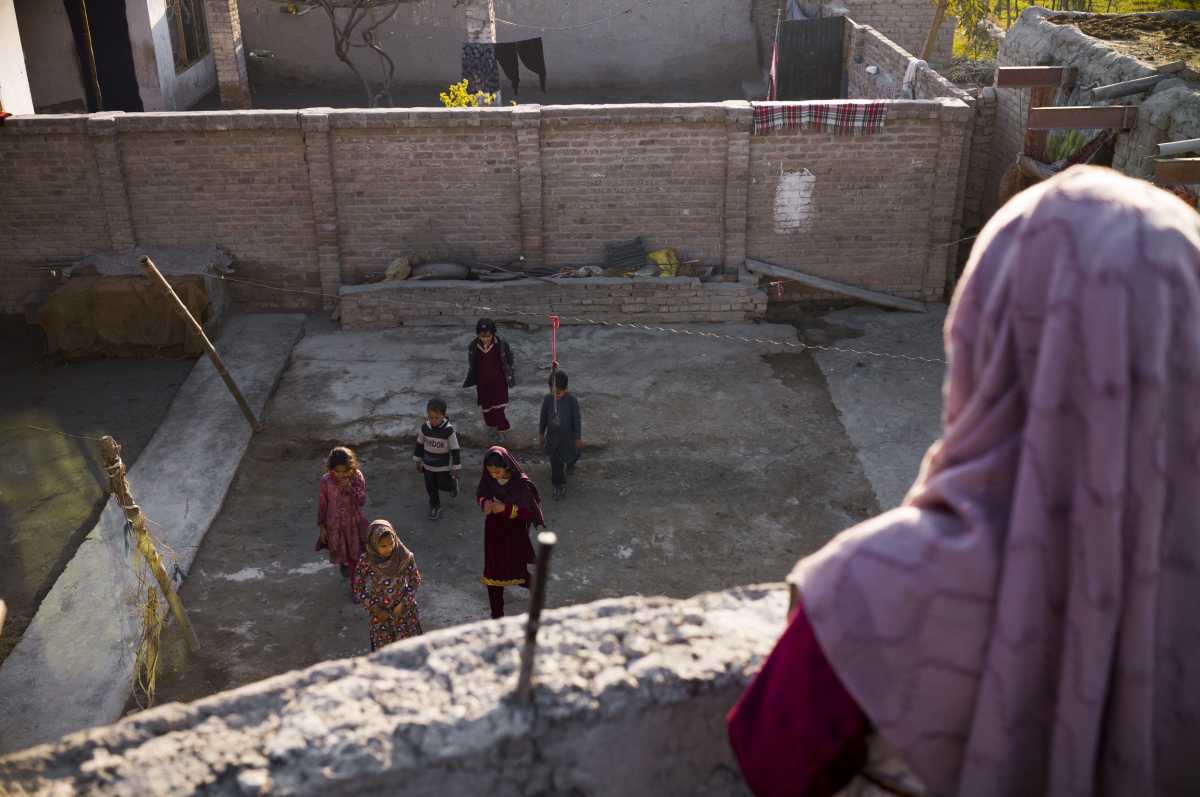“When a nation improves access to education for its people, including boys, girls, men and women, they can develop themselves, their country, and the whole nation will prosper. And that’s why I love my job as an Education Extender,” says Aisha,* a female humanitarian aid worker from Afghanistan.
Aisha has worked for an international organization in Afghanistan in education monitoring for more than a year. She visits public schools, monitors community-based schools, supports accelerated learning centres and conducts teacher training programmes.
Previously, she was a teacher for five years. Seeing girls attend school gave her hope that her country was heading in the right direction. But since the Taliban de facto authorities took over Afghanistan in August 2021, women and girls have been systematically excluded from all aspects of public and political life; their access to education, employment, justice and humanitarian assistance is now restricted. Increasingly, women and girls are confined to four walls; they are prisoners in their own homes.
Aisha says: “Education is important in Afghanistan because it is a human right and enables people to realize their potential and be more creative and productive. It’s one of the most effective ways to improve individual and family income and a solution to addressing poverty.
“More than ever, children in Afghanistan need support to go to school. Public schools and education centres must be supported to enable young girls across Afghanistan to access education. If we allow all children, including girls, to attend school and realize their potential, most of our problems as a nation will be solved. As the saying goes: If you educate a woman, you educate the nation.
“This is what Afghanistan needs to do instead of taking the opposite direction by banning girls and women from accessing education and from working. Banning women and girls from every aspect of life is akin to wiping away a large part of national human capital.
“We are going backwards, and the nation is paying the price by creating conditions that worsen the poverty situation.”
Education is my passion!
Aisha enjoyed teaching, but she developed a deep passion for overseeing how others educate and impart knowledge, as she believes this is where and how quality education can be improved and assured.
She explains: “I work with the provincial education authorities, community-based education teams and field monitors to conduct monitoring, verification and community mobilization, and to establish community-based schools and learning centres.
“I monitor teaching-learning processes, the status of students’ attendance, classroom instructions, and the availability of teaching and learning materials. I also focus on student-related issues, such as girls’ participation, access, retention and student performance. I do this with the provincial education department through joint field visits.
“Monitoring allows me to speak directly with the teachers, children, the school administration and community elders, and to convey needs, achievements and challenges to my agency. This helps to improve the quality of education, and that is part of my contribution towards the development of my country.
“Each time I visit schools, I see young girls who exude potential to be future leaders, doctors, teachers, social workers, engineers and anything they want to be. But when I turn around and hear that the authorities are imposing bans on women, it breaks my heart.”
Girls need female teachers
“I was so inspired to see girls attending school and participating in class. It gave me hope that those few who are able to take the risk and attend school do so in the midst of so many bans; the future is bright.
“In some schools, the decrees banning women from teaching have affected girls’ attendance and participation. Girls are more comfortable in the presence of female teachers. They are their guardians and role models.
“In addition, the absence of female teachers at some schools also discourages parents from sending their daughters to school. Parents feel assured of the safety and comfort of their daughters when they know that they are being monitored by female teachers at school.”
Lift the bans, free the women
Aisha is disappointed that girls aged between 10 and 15 were not in school or learning centres because classes were shut down.
She said: “One way Afghanistan can get itself out of poverty and the current humanitarian situation is by lifting these bans on women.
“We have a major role to play in developing our country. Allow us to contribute to our families and national development.
“We call on the United Nations and the international community to continue advocating for the lifting of all bans on women, including on education.”
*Name has been changed.
Source : OCHA










